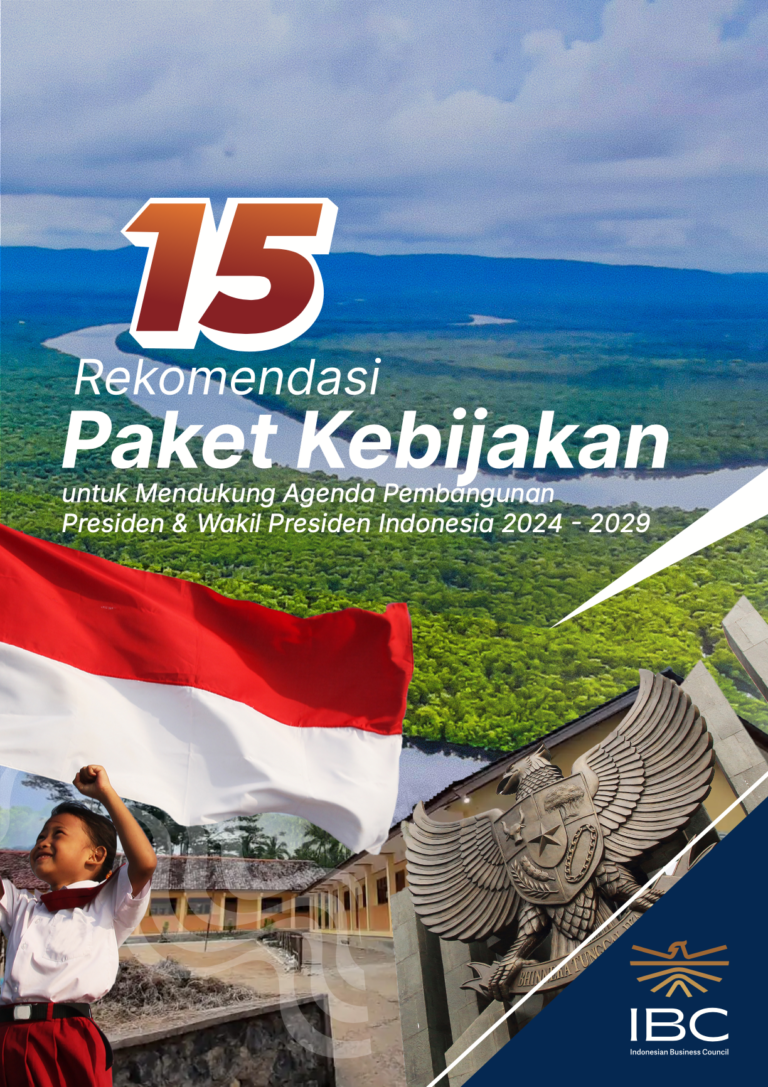Indonesia’s digital economy is projected to reach $130 billion by 2025, signalling strong growth but also exposing gaps in data security and fragmented governance. To sustain progress and attract investment, Indonesia must align its data regulations with global standards, such as pursuing EU adequacy. Achieving this would ease cross-border data flows, enhance investor confidence, and strengthen Indonesia’s role in the global digital economy. Without such alignment, the nation risks regulatory fragmentation, reduced competitiveness, and missed opportunities.
IBC's Papers
Paper
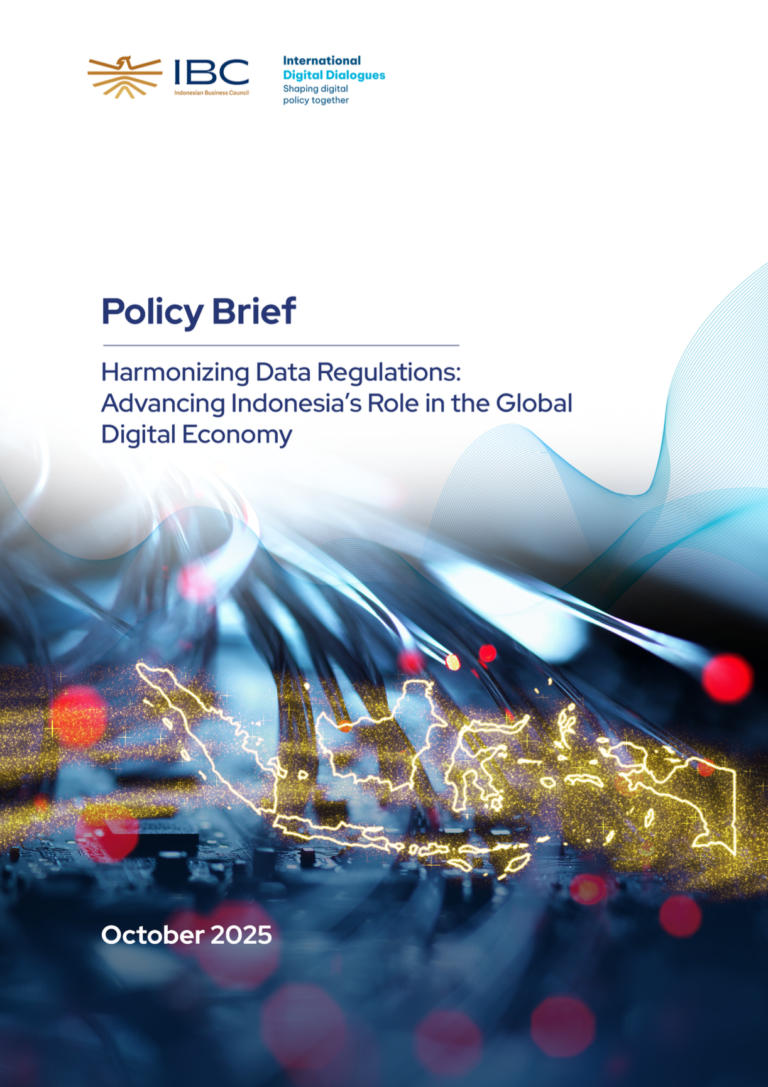
Abstract
Paper
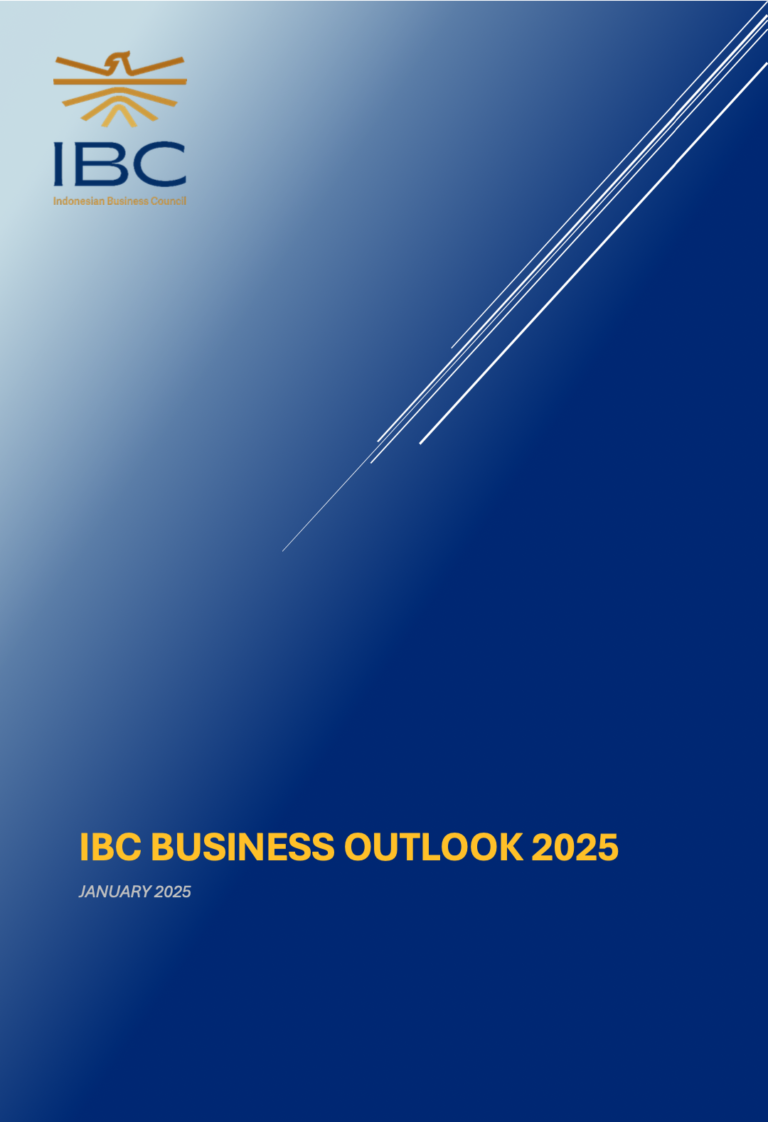
Abstract
Indonesia enters 2025 in the middle of a cross-fire, facing an increasingly complex economic landscape shaped by both global disruptions and domestic challenges. The nation’s ability to navigate shifting geopolitical dynamics, trade realignments, and technological advancements while addressing structural inefficiencies at home will determine its economic trajectory. The IBC Business Outlook 2025 provides an analysis of these key forces, offering insights to equip businesses and policymakers with the foresight needed to adapt, innovate, and drive sustainable growth.
Paper
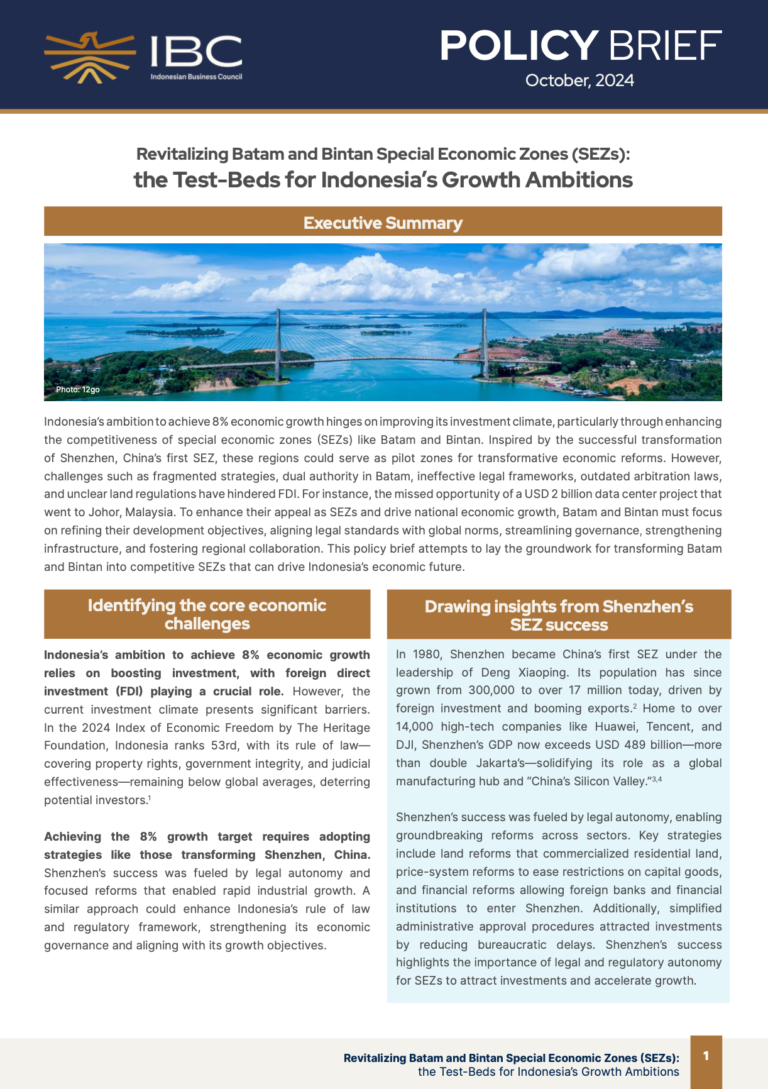
Abstract
Indonesia’s ambition to achieve 8% economic growth hinges on improving its investment climate, particularly through enhancing the competitiveness of special economic zones (SEZs) like Batam and Bintan. Inspired by the successful transformation of Shenzhen, China’s first SEZ, these regions could serve as pilot zones for transformative economic reforms. However, challenges such as fragmented strategies, dual authority in Batam, ineffective legal frameworks, outdated arbitration laws, and unclear land regulations have hindered FDI. For instance, the missed opportunity of a USD 2 billion data center project that went to Johor, Malaysia. To enhance their appeal as SEZs and drive national economic growth, Batam and Bintan must focus on refining their development objectives, aligning legal standards with global norms, streamlining governance, strengthening infrastructure, and fostering regional collaboration. This policy brief attempts to lay the groundwork for transforming Batam and Bintan into competitive SEZs that can drive Indonesia’s economic future.
Paper
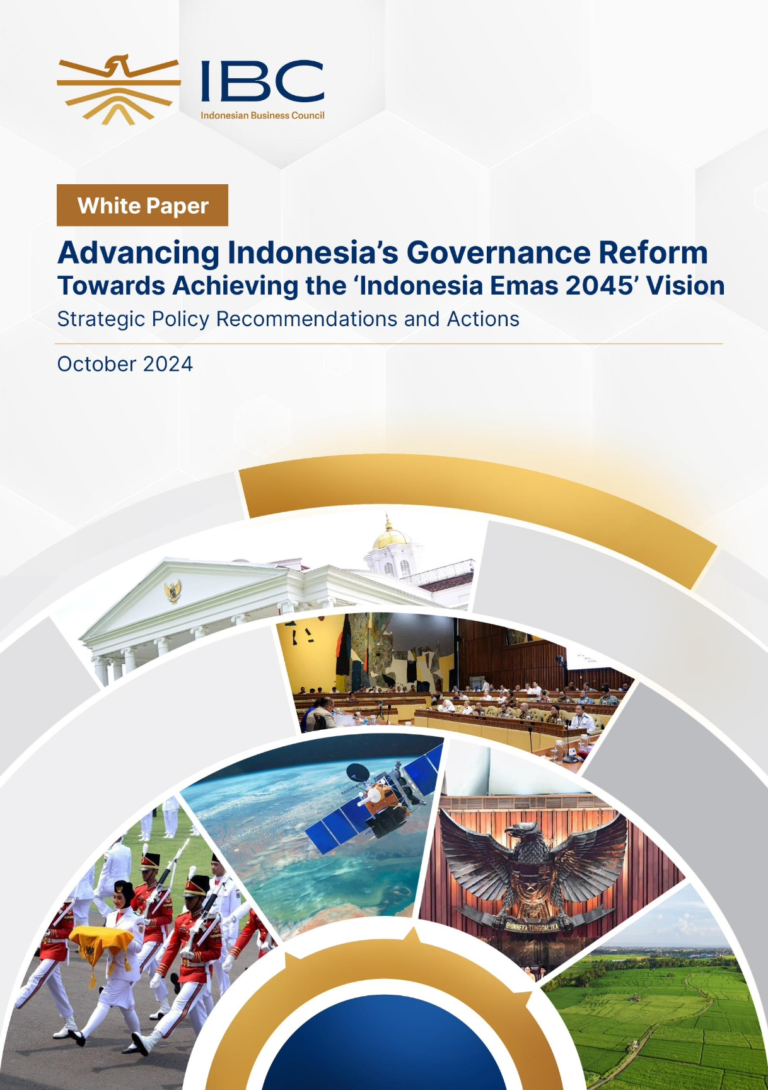
Abstract
This study utilizes the World Governance Indicators (WGI) framework, developed by the World Bank, to provide a comprehensive analysis of Indonesia’s governance landscape. It highlights effective practices and offers practical recommendations to address the challenges faced by Indonesia. IBC believes the pressing need for governance reform is not only a matter of improving administrative efficiency but also a strategic imperative for Indonesia’s long-term development objectives. Without comprehensive reforms, the nation risks overcoming persistent issues like corruption, inefficiency, and inadequate public services.
The document emphasizes the importance of systematic and thorough governance reform as a high-priority agenda, crucial for achieving ambitious economic growth targets and enhancing the well-being of the Indonesian people.
Executive Summary

Abstract
To support the leadership of President Prabowo Subianto and Vice President Gibran Rakabuming Raka, IBC proudly presents the white paper titled “15 Policy Package Recommendations to Support the Development Agenda of the President and Vice President of Indonesia 2024 – 2029.” This document maps out challenges across various focus areas and offers strategic policy package recommendations to support delivering 8 Asta Cita Missions, 8 Best Results Programs Fast, 17 Priority Programs, as well as other work programs.
The 15 policy package recommendations are based on the national management framework for a Competitive and Prosperous Indonesia. This framework consists of four main pillars: Economy, Human Resources, Governance, and Innovation, specifically formulated through 15 focus areas. These focus areas cover issues such as resource downstreaming, food estate, bureaucracy digitalization, and advanced technology production. Each policy package recommendation is designed in a modular fashion, allowing readers to select the parts most relevant to their interests and fields independently.
Paper
